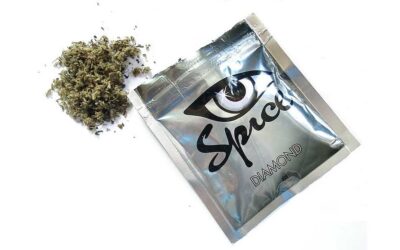THC Detection in Blood: Challenges and Implications
When it comes to enforcing drugged driving laws, police and employers face a unique challenge with marijuana. Unlike alcohol, which is metabolized and eliminated relatively quickly, THC, the psychoactive compound in marijuana, can remain detectable in the blood for several days or even weeks after use.
This is because THC is highly fat-soluble, meaning that it dissolves easily in fat cells. Once THC is absorbed into the bloodstream, it is distributed throughout the body, including the fat cells. When THC reaches the brain, it binds to cannabinoid receptors, producing the intoxicating effects associated with marijuana use.
As the intoxicating effects of THC wear off, it is released from the brain and redistributed to other tissues, including the fat cells. THC can be stored in fat cells for weeks or even months, and it is released slowly back into the bloodstream over time.
This means that a blood test for THC can detect past marijuana use, even if the individual is no longer under the influence. This poses a challenge for law enforcement and employers, who may want to use blood tests to identify drivers or employees who are currently impaired by marijuana.
Scientific Evidence
A number of studies have investigated the relationship between THC blood levels and impairment. One study found that THC blood levels above 5 ng/mL were associated with an increased risk of impaired driving performance. However, another study found that some individuals with THC blood levels below 5 ng/mL were still impaired, while others with THC blood levels above 5 ng/mL were not impaired.
These findings suggest that THC blood levels are not a reliable indicator of impairment. Other factors, such as individual metabolism, tolerance, and route of administration, can also play a role.
Implications
The limitations of THC blood tests for detecting impairment have important implications for law enforcement and employers. Law enforcement officers should not rely solely on blood tests to determine whether a driver is impaired by marijuana. They should also consider other factors, such as the driver’s behavior and performance on field sobriety tests.
Employers who use blood tests to screen employees for marijuana use should be aware that a positive test result does not necessarily mean that the employee is impaired at work. Employers should have a clear policy in place for responding to positive drug tests, and they should take into account all relevant factors, such as the employee’s job duties and performance.
Conclusion
THC detection in blood is a complex issue with important implications for law enforcement and employers. It is important to understand the limitations of THC blood tests and to use them in conjunction with other information to assess impairment.
Implications
The limitations of THC blood tests for detecting impairment have important implications for law enforcement and employers. Law enforcement officers should not rely solely on blood tests to determine whether a driver is impaired by marijuana. They should also consider other factors, such as the driver’s behavior and performance on field sobriety tests.
Employers who use blood tests to screen employees for marijuana use should be aware that a positive test result does not necessarily mean that the employee is impaired at work. Employers should have a clear policy in place for responding to positive drug tests, and they should take into account all relevant factors, such as the employee’s job duties and performance.
Conclusion
THC detection in blood is a complex issue with important implications for law enforcement and employers. It is important to understand the limitations of THC blood tests and to use them in conjunction with other information to assess impairment.
Conclusion
THC detection in blood is a complex issue with important implications for law enforcement and employers. It is important to understand the limitations of THC blood tests and to use them in conjunction with other information to assess impairment.
Did You Know
Michigan State Police Legal Updates
MSP Legal Update No. 153 (01/2023)
- Search & Seizure: The smell of marihuana, standing alone, no longer constitutes probable cause to search for that substance
- Vehicle Code: Violation for impeding traffic requires evidence the accused’s conduct actually affected the normal flow of traffic.
Legal Update No. 153 (01/2023)
MSP Legal Update No. 150 (01/2022)
- Vehicle Code: Persons under the age of 21 may be prosecuted for operating a motor vehicle with the presence of marihuana in their system
- Criminal Law: Ethnic intimidation based on gender includes harassing or intimidating another person because of the actual or perceived gender of that person.
Legal Update No. 150 (01/2022)
Legal Update No. 148 (09/2021)
Legal Update No. 148 (09/2021)
Legal Update No. 147 (03/2021)
More Posts
MMMA-Profile-Michael-Komorn
Here are some links to articles posted by Attorney Michael Komorn US Government Collecting and Using Citizen Communications NATIONAL TOXICOLOGY PROGRAM Technical Report Series No. 446 (1996) Oral cannabis extracts as a promising treatment for the core...

Komorn Law – Victory in Genesee County
Komorn Law PLLC is proud to report a ruling today from the Genesee County Circuit Court. This case involved my client's property and all kinds of salacious allegations of really bad behavior by this property, and I mean bad stuff, like stuff you could never...

Komorn Law AVVO Ratings
KOMORN LAW AVVO - RATINGS Read Client AVVO Reviews

Komorn Law-In the News-Fox17
Komorn Law | In the News | Fox 17 News | Links Medical marijuana battle: Father fights for custody of son OTTAWA COUNTY, Mich. – Medical marijuana is a controversial, sometimes sticky issue, especially in Michigan. Max Lorincz is a father from Spring Lake who...
AVVO Ratings and Reviews Update Aug 2016
Michael Komorn’s reviews 5.0 stars - 23 Total Avvo Rating: 10.0 out of 10 Cases dismissed 5.0 stars Posted by Ryan August 24, 2016 I had two charges in Wayne county. I was facing 6 years in prison. Michael was very informative and reassuring...

US Dept of Justice letter regarding prosecution for marijuana
Attorney General Eric Holder's speech regarding dropping mandatory minimums for many drug crimes is already making an impact. Read the letter from the DOJ

Clio marihuana dispensary fighting Genesee County Prosecutor’s office in court
CLIO (WJRT) - (04/25/16) - A Mid-Michigan marihuana dispensary is fighting the Genesee County Prosecutor's office in court after FANG shut them down. The owner of the Clio dispensary says warrants weren't valid and he wants his business back open. Attorneys...

New Roadside Drug Test
What is the law? The Michigan legislature has passed into law a one-year pilot program set up in five counties that allows for Michigan State Police to perform roadside drug tests. The way this will work is if a driver gets pulled over for a traffic offense, in...

Why Are Michigan Prosecutors Reassessing Their Cases Against Medical Marijuana Patients?
Trying to understand why prosecutors in St. Clair County, Michigan, suddenly decided to drop their case against Ginnifer Hency, a medical marijuana patient and caregiver, and return the property that police seized from her home, I obtained several court documents from...

Attorney: Crime labs ‘falsified’ marijuana reports
A Southfield lawyer alleges the Michigan State Police crime labs have “falsified lab reports on marijuana statewide” and he’s asking a judge to dismisses charges lodged against a client. Michael Komorn, who also represents defendants in Livingston County, said...








